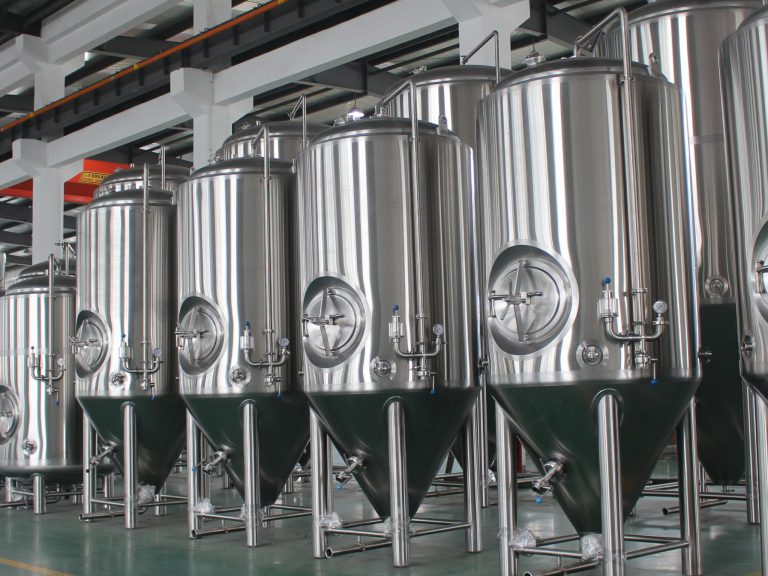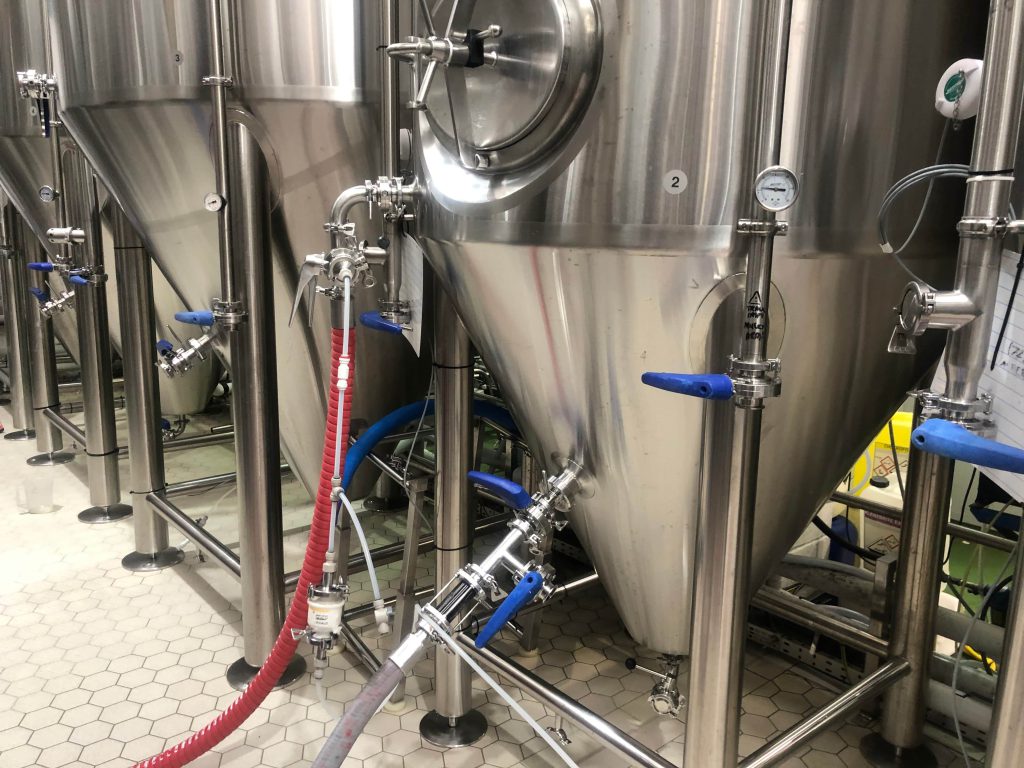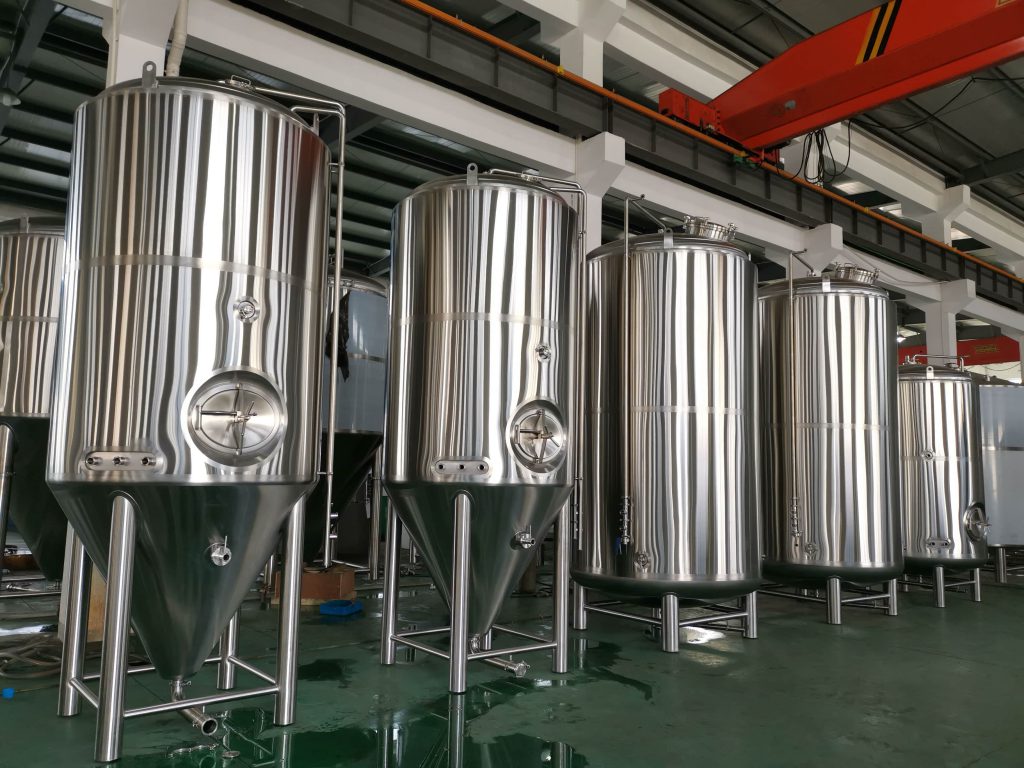مقدمة

For the aspiring and seasoned homebrewer alike, selecting the ideal beer fermenters is a pivotal step on the path to crafting exceptional brews. This vessel serves as the critical environment where the magic of fermentation unfolds, transforming simple wort into the complex and flavorful beverages we cherish. The market presents a diverse array of options, from classic glass carboys to sophisticated stainless steel conical fermenters, each with unique strengths and weaknesses. This comprehensive guide aims to navigate through this landscape, exploring the various types of beer fermenters, their inherent advantages and disadvantages, and ultimately empowering you to make an informed decision that aligns perfectly with your brewing aspirations and budgetary constraints.
Understanding Beer Fermenters
At its core, a beer fermenter is a specialized container designed to provide a controlled and consistent environment for the intricate process of fermentation. During this crucial stage, yeast diligently consumes sugars within the wort, converting them into alcohol and carbon dioxide. The selection of the beer fermenter exerts a profound influence on the final outcome, impacting not only the flavor profile of your beer but also its clarity and overall quality. Factors such as temperature fluctuations, oxygen exposure, and the ability to manage trub (sediment) can significantly impact the brewing process. Therefore, understanding the nuances of different beer fermenter types is paramount for every homebrewer seeking to consistently produce exceptional results.
انواع من تخمير البيرة
- Glass Carboys: A time-honored tradition in homebrewing, glass carboys have long been a popular choice due to their affordability and accessibility. These vessels, typically crafted from thick, durable glass, offer several advantages. Their inert nature minimizes the risk of off-flavors being imparted to the beer, and their transparency allows for visual observation of the fermentation process, enabling brewers to monitor activity and identify potential issues. However, glass carboys also come with inherent limitations. Their fragility makes them susceptible to breakage, particularly during handling and cleaning. Moreover, they lack many of the advanced features found in more modern beer fermenters, such as temperature control mechanisms and efficient trub collection systems.
- دلاء بلاستيكية: Representing another budget-friendly option, plastic buckets offer a degree of practicality and convenience. Their lightweight and durable construction makes them easy to handle and transport, while their relatively low cost makes them an attractive choice for those starting their homebrewing journey. However, plastic buckets also have their drawbacks. The potential for scratches and imperfections on the interior surface can create harborages for bacteria, potentially compromising the sanitary conditions within the beer fermenter. Furthermore, some types of plastic can impart subtle off-flavors to the beer, although food-grade plastics designed for brewing purposes are generally considered safe.
- Stainless Steel Buckets: Offering a compelling blend of affordability and durability, stainless steel buckets have emerged as a popular choice for many homebrewers. Constructed from a robust and corrosion-resistant material, stainless steel buckets are highly durable and can withstand the rigors of repeated use. Their smooth, non-porous surface is easily cleaned and sanitized, minimizing the risk of bacterial contamination. Additionally, stainless steel is generally considered inert, reducing the likelihood of unwanted flavors being imparted to the beer.
- Stainless Steel Conical Fermenters: Often regarded as the gold standard for homebrewers, stainless steel conical fermenters offer a level of sophistication and functionality that surpasses traditional vessels. Their conical shape facilitates the efficient collection of trub (sediment) at the bottom, simplifying the racking process and minimizing the risk of transferring unwanted particles to the secondary fermentation vessel. Furthermore, many models incorporate features such as temperature control jackets, allowing for precise temperature management throughout the fermentation process. This level of control is crucial for achieving consistent results and maximizing the potential of different yeast strains.
- Plastic Conical Fermenters: For those seeking the advantages of a conical design without the associated premium price tag, plastic conical fermenters offer a viable alternative. These vessels combine the affordability of plastic with the functionality of a conical shape, enabling efficient trub collection and facilitating the racking process. However, it’s important to note that plastic conical fermenters may not possess the same level of durability as their stainless steel counterparts and may be more susceptible to damage over time.
Factors to Consider When Choosing Beer Fermenters
Selecting the optimal beer fermenters for your homebrewing needs requires careful consideration of several key factors.
- سعة: The appropriate size of your beer fermenters will be determined by the typical batch size you produce during your brewing sessions. Ensure that the chosen vessel provides sufficient headspace to allow for active fermentation and prevent the risk of overflow.
- مادة: As discussed previously, the choice of material – glass, plastic, or stainless steel – will significantly impact the durability, ease of cleaning, and potential for flavor interactions within your beer fermenters.
- سمات: Evaluate the specific features offered by each beer fermenter model. Consider whether temperature control capabilities are essential for your brewing style, whether trub collection mechanisms are included, and how easily the beer fermenters can be cleaned and sanitized.
- ميزانية: Set a realistic budget for your beer fermenter purchase and explore the range of options available within that price range. Prioritize the features that are most important to you and select the beer fermenters that offer the best value within your budgetary constraints.
مقارنة مختلفة تخمير البيرة
| ميزة | قارورة زجاجية | دلو بلاستيك | Stainless Steel Bucket | Stainless Steel Conical | Plastic Conical |
|---|---|---|---|---|---|
| يكلف | قليل | قليل | واسطة | عالي | واسطة |
| متانة | قابل للكسر | معتدل | عالي | عالي | معتدل |
| تنظيف | سهل | سهل | سهل | سهل | سهل |
| سمات | أساسي | أساسي | أساسي | متقدم | متقدم |
| براعه | محدود | محدود | معتدل | عالي | عالي |
اختيار الحق تخمير البيرة for Your Homebrewing Needs

The ideal beer fermenters for your homebrewing journey will ultimately depend on your individual needs, preferences, and brewing style.
- Beginners and budget-conscious brewers may find that glass carboys or plastic buckets provide a suitable starting point. These affordable options offer a simple and effective means of fermenting beer while allowing you to gain valuable experience.
- More experienced homebrewers who are seeking to refine their brewing techniques and consistently produce high-quality beers may find that investing in stainless steel conical beer fermenters is a worthwhile endeavor. The advanced features and enhanced control offered by these vessels can significantly elevate the quality of your homebrews.
- Those seeking a balance between affordability and functionality may find that plastic conical beer fermenters provide a compelling option. These vessels offer many of the advantages of a conical design at a more moderate price point.
خاتمة
The selection of your مخمرات البيرة is a pivotal decision that will have a profound impact on the quality and consistency of your homebrews. By carefully considering the factors outlined in this guide, including capacity, material, features, and budget, you can make an informed choice that aligns perfectly with your brewing aspirations. Remember, the best beer fermenters are the ones that empower you to consistently produce exceptional beers that bring you joy and satisfaction.
التعليمات
What is the best material for مخمرات البيرة?
Stainless steel is widely regarded as the optimal material for beer fermenters due to its exceptional durability, ease of cleaning, and inert properties. Stainless steel is highly resistant to corrosion, making it a hygienic and long-lasting choice.
كم مرة يجب أن أقوم بتنظيف منزلي؟ مخمرات البيرة?
Maintaining a rigorous cleaning and sanitization regimen is crucial for ensuring the safety and quality of your homebrews. It is recommended to thoroughly clean and sanitize your beer fermenters after each use to prevent the accumulation of bacteria and other contaminants.
Can I use a plastic bucket for brewing beer?
Yes, plastic buckets can be utilized for brewing beer. However, it’s important to exercise caution. Some types of plastic may impart subtle off-flavors to the beer, and scratches on the interior surface can provide harborages for bacteria.

